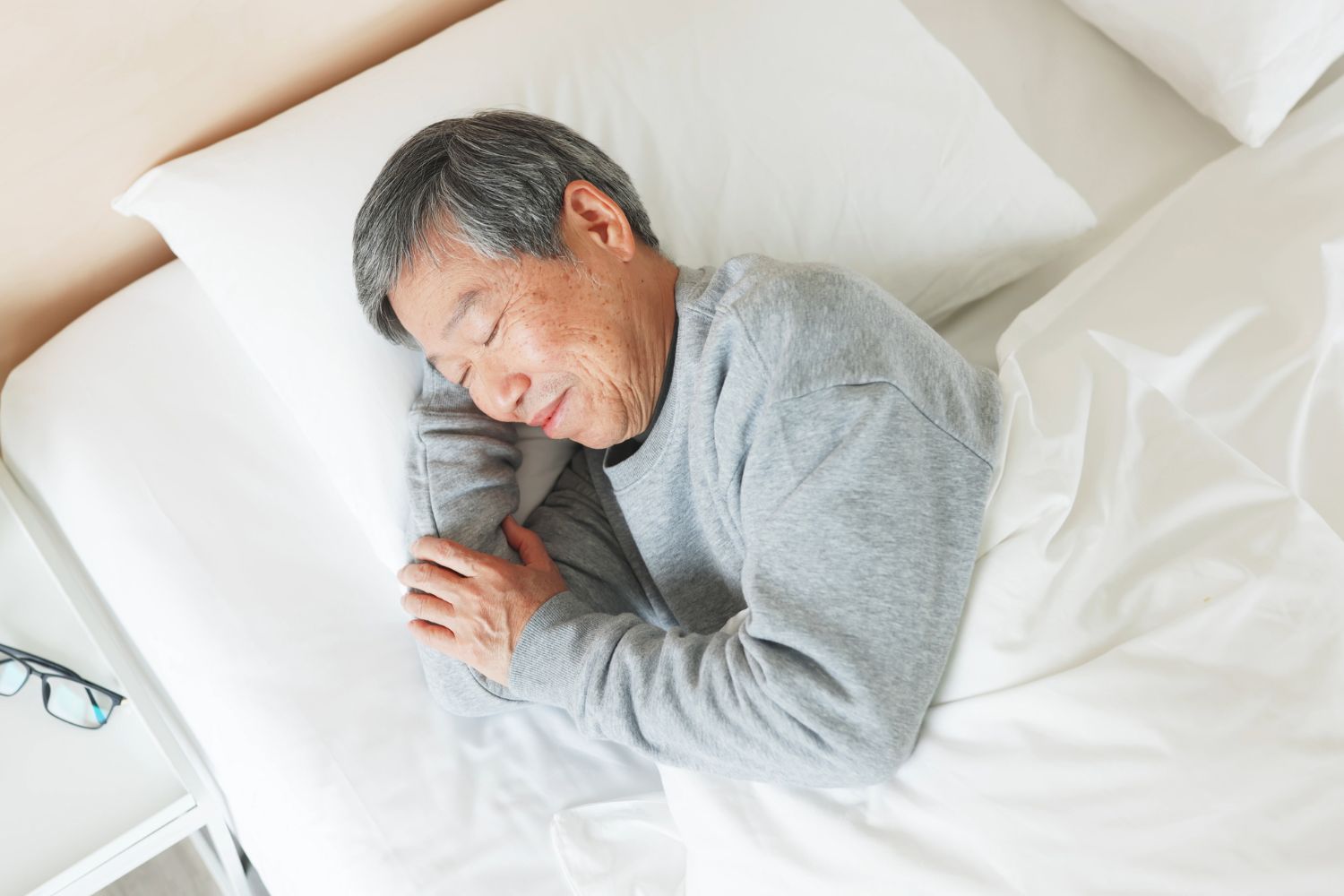
As a senior, it is understandable if you are having sleep troubles. According to the National Sleep Foundation, about two-thirds of older adults experience one or more symptoms of a sleep problem at least a few nights a week. But, rest assured, there are certainly ways to achieve the restful sleep that is so essential for your health. Continue reading to find out more on specific sleep matters.
Common sleeping problems
As people age, they tend to have a harder time falling asleep and more trouble staying asleep than when they were younger. It is a common misconception that sleep needs decline with age. In fact, research demonstrates that our sleep needs remain constant throughout adulthood. Changes in the patterns of our sleep – what specialists call “sleep architecture” – occur as we age, and this may contribute to sleep problems.
While the prevalence of sleep disorders tends to increase with age, much of the sleep disturbance among the elderly can be attributed to physical and psychiatric illnesses and the medications used to treat them.
How chronic medical problems affect sleep
As we age, there is an increased incidence of medical problems, which are often chronic. In general, people with poor health or chronic medical conditions have more sleep problems. For example:
- Hypertension is associated with both snoring and sleep apnea – both increase as we age.
- Heart failure affects approximately five million Americans, and as many as 40 percent of people with heart failure also have sleep apnea.
- Menopause, with its accompanying hot flashes, changes in breathing and decreasing hormonal levels, can lead to many restless nights.
- Gastroesophageal reflux disease (GERD) causes difficulty both falling and staying asleep. Of heartburn sufferers, about 80 percent experience night time heartburn, causing discomfort and awakenings. This is more likely to occur while in the supine (on your back) position.
- Sleep patterns among people with dementia are typically fragmented, and this fragmentation increases as dementia worsens. Breathing due to sleep disorder also occurs more frequently in those with Alzheimer’s disease. Those with Parkinson’s disease are more likely to have RLS symptoms.
- The pain and discomfort of arthritis, and other musculoskeletal conditions such as back pain, make it difficult to sleep through the night.
- Medications for chronic medical conditions and the interactions that can occur when someone takes multiple medications for several illnesses can adversely affect sleep.

How to establish healthy sleep patterns
If you are getting healthy sleep on a regular basis, you should feel alert during waking hours. There are a number of behavioural modifications you can make to establish healthy sleep. They include:
- Using your bed and bedroom for sleep only.
- Therapy to help modify attitudes and beliefs that may contribute to poor sleep.
- Relaxation training, which often involves reducing tension, and muscular relaxation techniques.
- Restricting time in bed if you spend too much of that time lying awake.
If you are experiencing difficulty sleeping, consider whether an event or particular stress could be the cause. If so, the problem may resolve in time. If not, talk to your doctor about your symptoms. Record your sleep for one to two weeks, note down any fatigue levels or other symptoms you experience throughout the day and bring this sleep diary with you when you see your doctor.
Insomnia and aging
The prevalence of insomnia is higher among older adults. 44 percent of older persons experience one or more of the night-time symptoms of insomnia at least a few nights per week or more. Insomnia may be chronic (lasting over one month) or acute (lasting a few days or weeks) and is often related to an underlying cause such as a medical or psychiatric condition.
What causes insomnia?
Insomnia can be a disorder in its own right, but often it is a symptom of some other disease or condition. Half of all those who have experienced insomnia blame the problem on stress and worry. In the case of stress-induced insomnia, the degree to which sleep is disturbed depends on the severity and duration of the stressful situation. Sometimes this may be a disturbing occurrence like loss of a loved one, loss of a job, marital or relationship discord or a tragic occurrence. Anticipation of such things as weddings, vacations or holidays can also disturb sleep and make it difficult to fall asleep or remain asleep. Insomnia can also occur with jet lag, shift work and other major schedule changes.
The prevalence of insomnia is higher among older people. Rates of insomnia increase as a function of age, but most often the sleep disturbance is attributable to some other medical condition.

Some medication can lead to insomnia, including those taken for:
- Colds and allergies
- High blood pressure
- Heart disease
- Thyroid disease
- Birth control
- Asthma
- Pain medications
- Depression (especially some antidepressants)
Symptoms of insomnia include:
- Difficulty falling asleep
- Waking up frequently during the night
- Difficulty returning to sleep
- Waking up too early in the morning
- Unrefreshing sleep
- Daytime sleepiness
- Difficulty concentrating
- Irritability
What are the best ways to treat insomnia?
It is worthwhile to speak to your doctor about insomnia symptoms and about any effects these symptoms may have. Your doctor can help assess how serious a problem is and what to do about it. For instance, cutting back on caffeine and napping may help solve the problem. If insomnia is creating serious effects, complicating other conditions or making you too tired to function normally during your waking hours, this would suggest that it is important to seek treatment.
When effects are serious and untreated, insomnia can take a toll on your health. People with insomnia can experience excessive daytime sleepiness, difficulty concentrating and increased risk for accidents and illness as well as significantly reduced quality of life. Both behavioural therapies and prescription medications singly or in combination are considered effective means to treat insomnia; the proper choice should be matched to a variety of factors in discussion with a physician.
